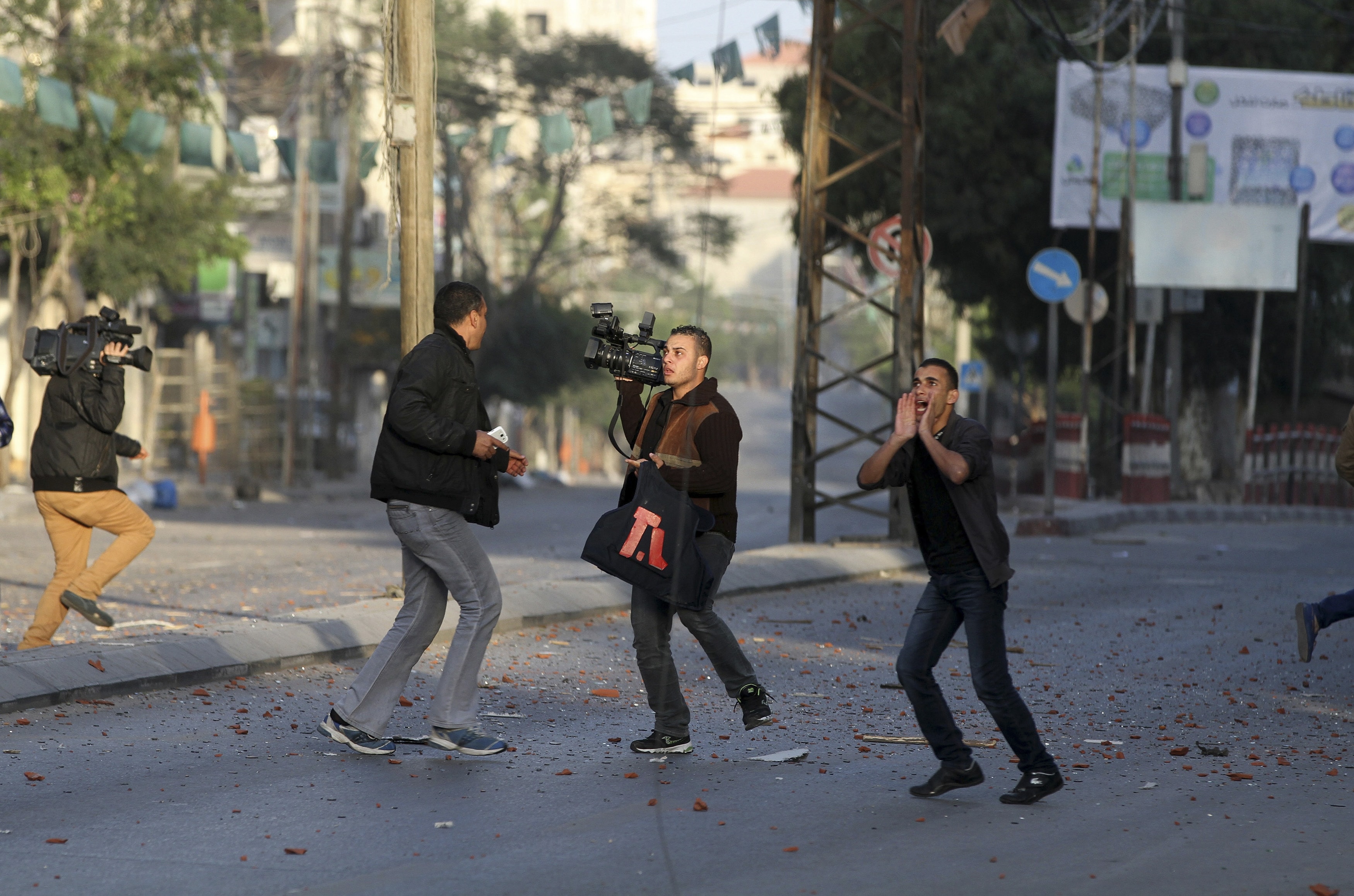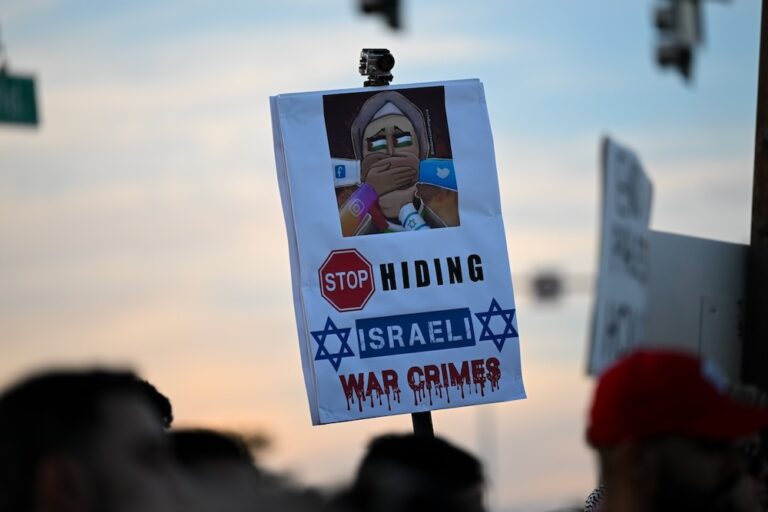Fatal attacks on three journalists followed a series of Israeli air strikes earlier in the week that injured at least 11 journalists and damaged news outlets in Gaza.
(IFEX) – Three journalists were killed on 20 November in what marked the seventh day of Israel’s “Operation Pillar of Defense” in the Gaza Strip. Israel has been specifically targeting media facilities in its airstrikes on Gaza City.
Mohammed Moussa Abu Eisheh, the executive director of Al-Quds Educational Radio, was killed when his car was hit by a missile in the district of Deir Al-Balah at about 8 p.m.
Two hours earlier, two cameramen working for Al-Aqsa TV, a Hamas-affiliated TV station, were killed. According to a report from the Palestinian Centre for Development and Media Freedoms (MADA), Mahmoud Al-Komi and Hossam Salameh were driving to Shifa Hospital where victims of the recent bombardment had been taken when their company car, clearly marked as a press vehicle, was targeted by missile fire.
The events have led to exchanges questioning the legitimacy of the journalists and the media they work for. According to Reporters without Borders (RSF), an Israeli military spokeswoman, Avital Leibovich, said that preliminary results of an investigation indicated that all three journalists were Hamas operatives.
Israeli forces issued a warning on Twitter on 20 November aimed at journalists in the area: @IDFSpokesperson: “Warning to reporters in Gaza: Stay away from Hamas operatives & facilities. Hamas, a terrorist group, will use you as human shields.”
Earlier, in an interview on 18 November for Al-Jazeera, Israeli government spokesman Mark Regev had stated that the Israeli Defense Forces (IDF) could not treat Al-Aqsa TV employees as “legitimate journalists” like BBC or Al-Jazeera English journalists.
RSF condemned Regev’s position and pointed out that “news media enjoy the same rights as civilians under humanitarian law and their offices cannot be regarded as military targets.”
The Deputy Director of the International Press Institute (IPI), Anthony Mills, said: “If indeed these journalists were unarmed non-combatants, as they appear to have been, there is no excuse for their assassination by the Israel Defense Forces. If the IDF claims that they were involved with terrorism they should present evidence that these journalists were indeed combatants. The assassination of journalists is a violation of international standards, which specify that journalists must be treated as non-combatants in conflict zones.”
According to the International Federation of Journalists (IFJ) President Jim Boumelha, the latest attacks amount to a “war on journalists in Gaza. There can be no more lame excuses from the Israeli Air Force that it was targeting its enemy’s communications. The army which claims its strikes are surgically precise must have known there were journalists in this car and it should be accountable for what appears to amount to a war crime.”
The Palestinian Centre for Development and Media Freedoms (MADA) has demanded the formation of an international investigation committee to “hold accountable those responsible for this crime and other crimes committed against journalists”.
Since the beginning of Israel’s offensive on 14 November 2012 when the IDF assassinated Ahmad Jabari, chief of the Gaza military wing of Hamas, 11 journalists have been injured.
Five of these injuries resulted from two missile attacks on the Al Shorouk building, also known as the journalists’ building, on 19 November.
According to RSF, a spokesman for the IDF said the target of the second attack on the Al-Shurouk building was Ramez Harb, head of media for Saraya Al-Quds, the armed wing of the Gaza-based group Islamic Jihad, who was killed in the airstrike.
Shortly after midnight on 20 November, Israeli missiles targeting other sites caused damage to international news agency Agence-France Presse’s offices and, in another part of the Gaza Strip, temporarily cut off power to the offices of the Associated Press, Al Jazeera and the Doha Media Centre, journalists from those organisations told IPI. No journalists were injured in those attacks.
Samir Khalifa, a correspondent of the Palestinian Authority-run Palestine TV in Gaza, was cited in The Electronic Intifada saying, “Harming us will not make us back down from our important mission, spreading facts here as far and wide as we can.”
“Israel should respect its obligations under international law and immediately halt its attacks against news media offices,” said Sherif Mansour, Middle East and North Africa Program Coordinator at the Committee to Protect Journalists (CPJ). “Authorities know these buildings are home to numerous news organizations whose employees are civilians protected by international law.”



